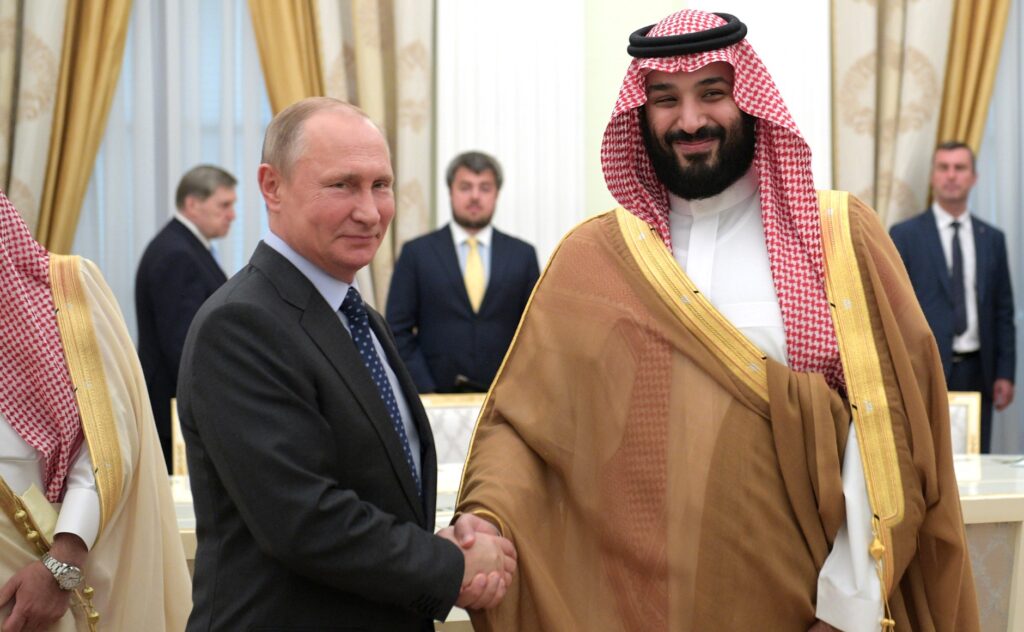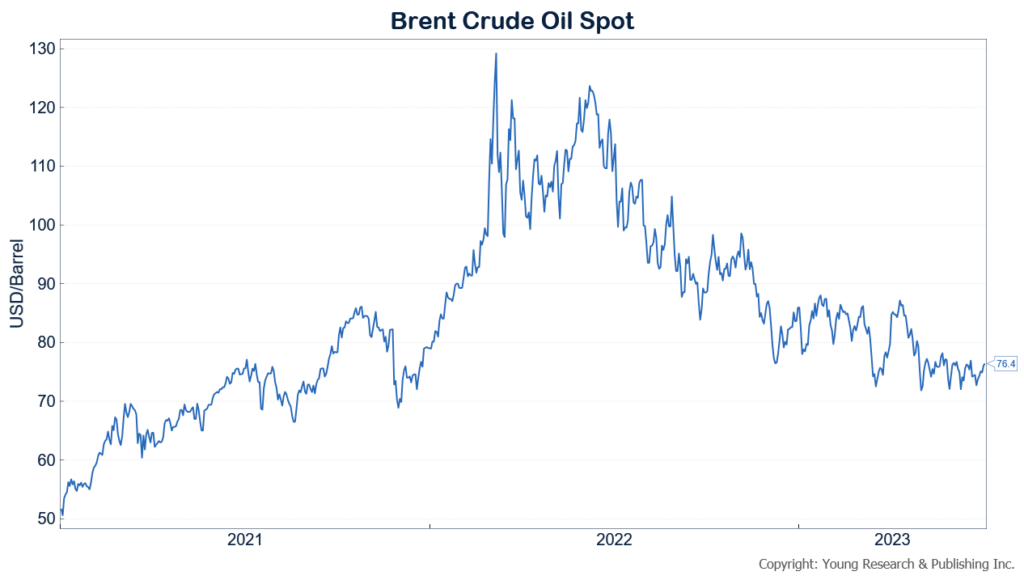
English: Vladimir Putin met with Crown Prince and Defence Minister of Saudi Arabia Mohammad bin Salman Al Saud. June 14, 2018. Photo courtesy of the office of the President of Russia.
Two of the world’s largest oil exporters are cutting production in an attempt to raise prices. Saudi Arabia and Russia are making additional cuts to their production in August in order to boost sluggish prices. David Sheppard reports at the Financial Times:
Saudi Arabia and Russia will extend or make additional cuts to oil production in August, the two most powerful members of Opec+ said on Monday, as they scrambled to boost the price of crude.
Saudi Arabia’s state news agency, citing an official source, said the kingdom would extend the 1mn-barrels-a-day production cut announced last month for July into August, while Russia’s deputy prime minister and top energy official Alexander Novak said Moscow would also make a “voluntary” supply cut of an additional 500,000 b/d next month. Oil prices rose slightly on the news.
The move by the Opec+ leaders, made outside of a formal meeting of the group, comes as they have struggled to boost the price of crude oil that has fallen sharply from its peak last year in the immediate aftermath of Russia’s invasion of Ukraine.
Having briefly risen above $130 a barrel last March, oil is now trading closer to $75 a barrel, despite a series of announced production cuts by the group that started in October last year, with traders focusing on high inflation and a potential recession in many large economies.
Saudi Arabia’s energy minister Prince Abdulaziz bin Salman has been at the forefront of efforts to raise the oil price as the kingdom attempts to transform its economy through a vast investment programme that requires high crude revenues to fund it. His half brother, Crown Prince Mohammed bin Salman, is the kingdom’s de facto ruler and the architect of the plan.
Russia also desires a higher price to fund its war in Ukraine, having lost a large part of its gas export revenues to Europe after it largely cut off supplies last year. It is facing a western-imposed price cap on a significant portion of its oil sales as part of retaliatory measures targeting its funds.
The Opec+ cuts have raised tensions in the past between Saudi Arabia and the White House, with US president Joe Biden keen to keep pump prices low ahead of next year’s election while putting the squeeze on Moscow’s revenues. But relatively low prices in recent months have tempered White House responses to one of its oldest allies in the Middle East, having at first accused Opec of effectively supporting Russia against the west.
If you’re willing to fight for Main Street America, click here to sign up for my free weekly email.






